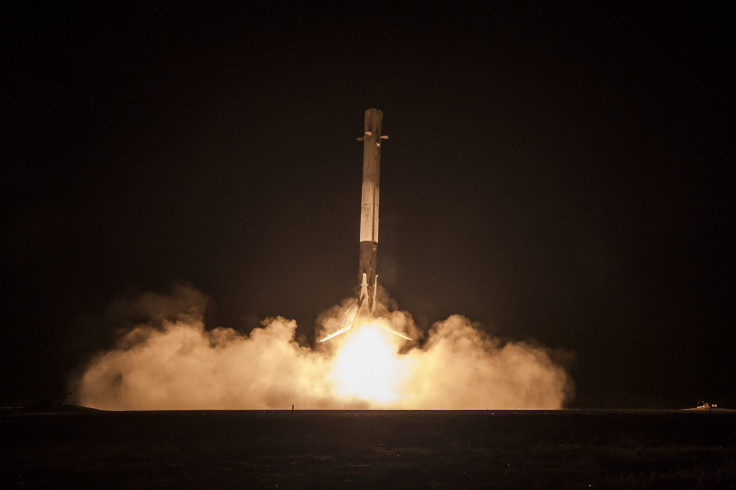SpaceX Falcon 9 Launch Live Stream: Rocket To Launch Two Communications Satellites

SpaceX’s Falcon 9 rocket will take to the skies Wednesday morning in a bid to put two commercial communications satellites in geostationary transfer orbits (GTO). After delivering its payload, the first stage of Falcon 9 will attempt to once again land on a barge in the Atlantic Ocean, furthering the company’s attempt to reuse its rockets.
The two satellites, EUTELSAT 117 West B and ABS-2A, are both made by Boeing Satellite Systems, and operated by Eutelsat and ABS, respectively. The Eutelsat satellite will “offer key services to Latin America clients in the field of telecommunications and government services. EUTELSAT 117 WEST B will also provide video services including DTH and DTT for the region,” according to the company’s website.
ABS-2A, meanwhile, “will serve South Asia, South East Asia, Russia, Sub-Sahara Africa and MENA regions” and is “suitable for DTH services, VSAT operators, maritime and mobility solutions,” ABS said on its website.
The launch will take place at SpaceX’s Space Launch Complex 40 at Cape Canaveral Air Force Station, Florida. The launch window is about 45 minutes, and opens at 10:29 a.m. EDT, the company said. “EUTELSAT 117 West B will be deployed approximately 30 minutes after liftoff, and ABS-2A will be deployed 5 minutes later,” the statement added.
The rocket’s first stage, which will separate after less than three minutes of liftoff, “will attempt an experimental landing on the ‘Of Course I Still Love You’ droneship. As with other GTO missions, the first-stage will be subject to extreme velocities and re-entry heating, making a successful landing difficult,” SpaceX said.
SpaceX is trying to land the first stage of its rockets safely back on Earth in an attempt to reuse them later, which will cut down significantly the cost associated with space transport. If Wednesday’s landing is successful, it will mark the fifth such landing for billionaire Elon Musk’s company, which has seen its share of spectacular failures.
Wednesday’s launch, like previous launches, will be webcast live and can be seen here.
© Copyright IBTimes 2025. All rights reserved.





















